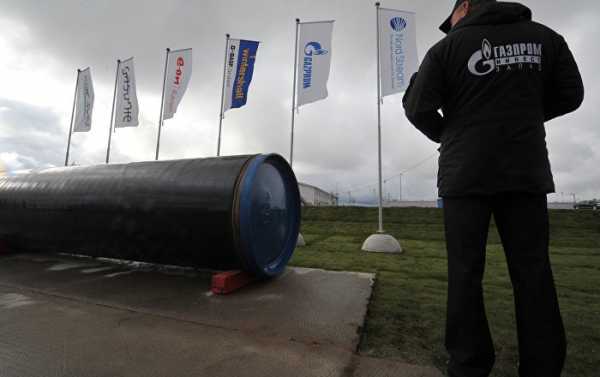
The Nord Stream 2 gas pipeline to Europe will double Russian natural gas supplies to Germany via the Baltic Sea and reduce transit across Ukraine.
A preparatory phase of the construction work for Nord Stream 2 gas pipeline to Europe is now underway in German coastal waters despite the threat of US sanctions, the Financial Times reported, citing Alexei Miller, the CEO of the Russia’s state-owned gas monopoly Gazprom.
While describing the construction in German territorial waters as “preparatory, a Nord Stream 2 spokesman said that this included the building of a connection from the landfall site in Lubmin to the offshore pipeline in deeper waters.
Simultaneously, work is continuing on an underwater trench to encase the pipeline as it runs through shallow waters close to the landfall installation.
The Russian gas pipeline to Europe will double natural gas supplies to Germany via the Baltic Sea and reduce transit across Ukraine.
While the construction of the 1,200-kilometer (745-mile) pipeline has already been approved by Germany, Finland, Sweden and Russia, Denmark’s agreement is still pending even though Nord Stream 2 asked for Copenhagen’s approval for a new pipeline route that would avoid the country’s territorial waters.
Because the new route would run further away from the Danish coast, in the country’s “exclusive economic zone”, this would make it much harder for Denmark to veto the project.
Some countries that are afraid of losing revenues from Russian gas transit, above all Ukraine, are opposed to the Nord Stream 2 venture.
The project is also facing opposition from the United States, which warns that the project is making Germany dependent on Russia. Germany has insisted that the project is entirely commercial.
During a meeting earlier this month, Russia’s President Vladimir Putin and German Chancellor Angela Merkel agreed “to take measures to make sure that [the Nord Stream 2 project] is protected from possible non-competitive and illegal attacks of third countries.”
German Foreign Minister Heiko Maas believes that “it is simply unacceptable to try to influence European energy policy.”
Nord Stream 2, which is a joint venture of Russia’s Gazprom with France’s Engie, Austria’s OMV AG, UK-Dutch Royal Dutch Shell, and Germany’s Uniper and Wintershall, aims to deliver 55 billion cubic meters of Russian natural gas a year to the European Union across the Baltic Sea to Germany.
An extension of the existing Nord Stream pipeline, Nord Stream 2 will run across the territories of Russia, Finland, Sweden, Denmark and Germany.
It is scheduled to become operational at the end of 2019.
Sourse: sputniknews.com






